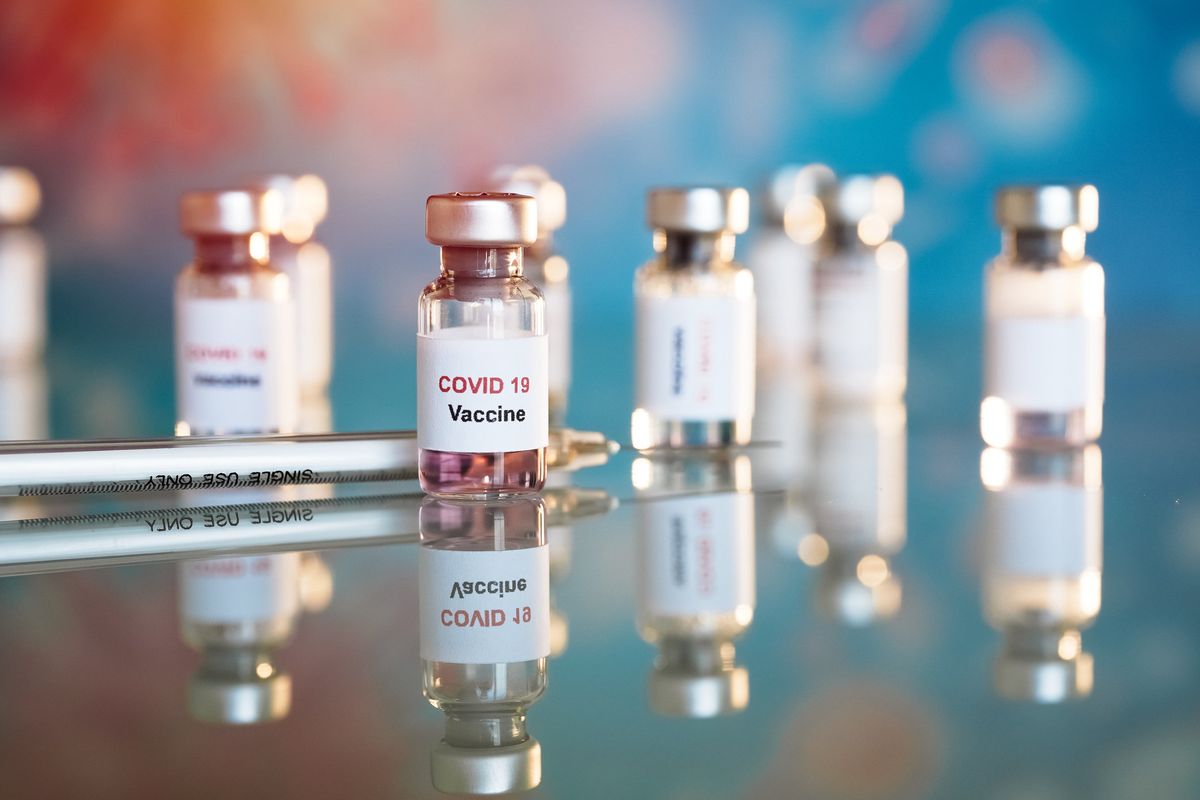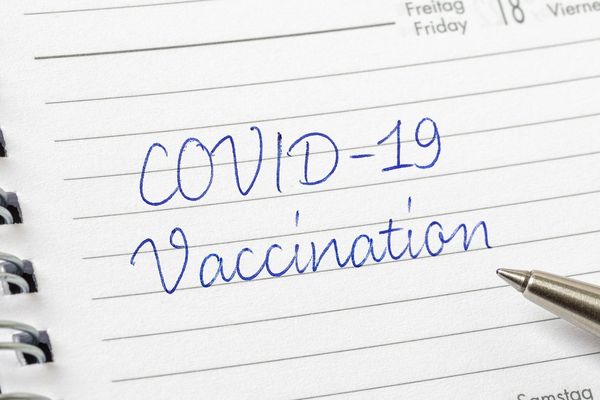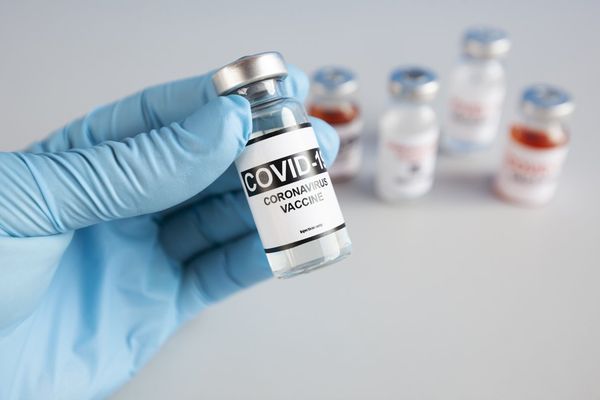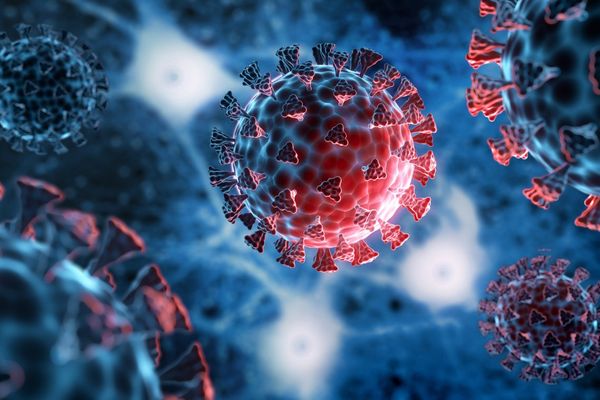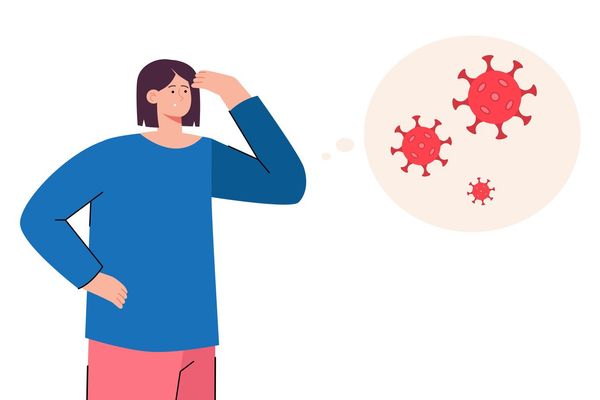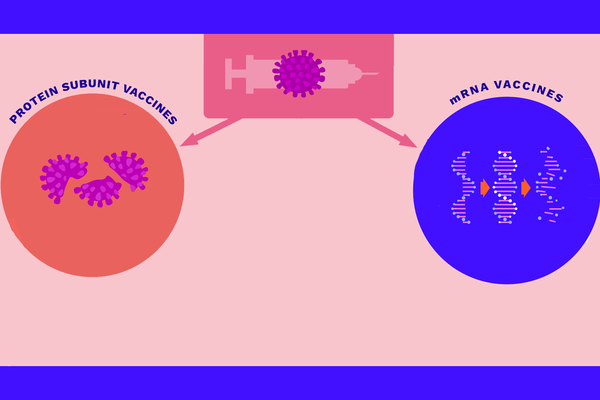Before a vaccine for measles was developed, I nearly died as a youngster from the disease. That personal experience, along with over 30 years working in women's health, leads me to believe that vaccines are generally safe and effective, saving millions of lives around the world every year.
Yet, according to a recent survey from STAT and the Harris Poll, 78% of Americans worry that the COVID-19 vaccine approval process is being driven more by politics than science.
I have spent over 30 years engaged in advancing scientific research and women's health. Throughout my decades of research, I have worked closely with Democratic and Republican members of Congress, five U.S. Food and Drug Administration (FDA) commissioners, the director of the National Institutes of Health (NIH) and the heads of Health and Human Services (HHS) from both major political parties. It is through a nonpartisan lens that I'm able to discuss the scientific realities of the COVID-19 vaccine approval process and why I believe we must increase public trust in vaccines.
How vaccines are developed
COVID-19 is a serious condition. Although older adults and people with existing chronic medical conditions are at greater risk of becoming seriously ill with the disease, no individual is exempt from potentially developing a serious case or experiencing long-term health complications. A vaccine to protect against COVID-19 may be our best chance of keeping millions of Americans healthy and safe.
Vaccines typically require many years of research — and sometimes even decades — before they undergo clinical trials, but the severity of the current coronavirus pandemic has prompted researchers around the world to work toward the development of a safe vaccine. As of today, 44 vaccines are being tested on humans in clinical trials.
There's a lot of misunderstanding about clinical trials, which are research studies performed on people that evaluate whether new treatments are safe. Clinical trials include four phases. The earliest phases test whether a new treatment is safe for people while the final phases determine whether a drug, vaccine or other therapy is better than any other treatments that may already be in use. Although researchers are racing to develop a COVID-19 vaccine, one doesn't have a chance of being approved and distributed to the public until it has made it through all of the phases and is approved by the FDA.
Will a COVID-19 vaccine be safe?
While vaccines are safe, none of them are 100% effective. For example, the measles vaccine is about 98% effective.
The COVID-19 vaccine won't be a "magic wand," but it will work to ease the burden of illness. The FDA won't offer approval of a COVID-19 vaccine unless it is at least 50% effective.
I'm encouraged to see that nine of the main pharmaceutical companies working on COVID-19 vaccines have pledged to "stand with science" and work together to assure that whichever vaccine is first approved by the FDA is safe and effective.
I acknowledge, however, that vaccine approval is just the beginning of an uphill journey toward crushing COVID-19. Distributing vaccines to people across the United States will be difficult. Not only will a large enough volume of vaccines need to be created, but supply chains must be able to properly store, refrigerate, transport and distribute massive numbers of vials.
Public trust and vaccine hesitancy
Even before the onset of the current pandemic, public perceptions about the safety and effectiveness of vaccines ranged from people who thought they were very safe and necessary to people who were skeptical of the science. In 2019, this skepticism led the World Health Organization to name vaccine hesitancy as one of the top 10 threats to global health.
I believe there is a COVID-19 vaccine on the horizon. As a researcher who trusts the science, I hope that most people, if they are able, will get the vaccine. For this to happen, we need to increase the public trust of vaccines.
In September, HealthyWomen joined the Alliance for Aging Research and 77 other national organizations in signing a letter urging leaders of federal health care agencies to rise above politics to address public concern and skepticism about COVID-19 vaccines. Focusing on the science and demanding government leaders make nonpartisan decisions based on evidence is the only way we will increase public trust in vaccines and move toward ending the current pandemic.
What to do now
While we still don't have a cure or a vaccine for COVID-19, we can take charge of our own health by making sure we have the most up-to-date research and scientific information. The Alliance for Aging Research released a short, helpful video about how vaccines work. It debunks common myths and misconceptions about vaccines.
We also need to listen to the experts. I've known and worked with Dr. Anthony Fauci — the Director of the National Institute of Allergy and Infectious Diseases and a member of the White House Coronavirus Task Force — for 20 years. I've also worked with the NIH Commissioner, Dr. Francis Collins. These are individuals who have advised many presidents and government agencies on both sides of the aisle. They can be trusted to give us accurate, science-driven information.
Currently, the most important advice is to follow proper social distancing guidelines and to wear your mask in public. This will allow researchers to work toward developing a vaccine with as few people as possible getting sick — including you, your loved ones and people living in your community.
Phyllis E. Greenberger is the senior vice president for science and health policy at HealthyWomen. She has over 30 years experience advancing scientific research and women's health, including as CEO and president of the Society for Women's Health Research. Greenberger is the recipient of numerous awards, including the Department of Health and Human Services' Trailblazer in Women's Health.

